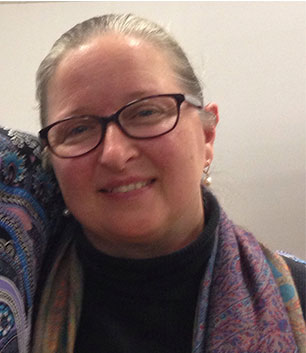Subject/Topic:
Motivational Interviewing in social work practice: knowledge and skills and clinical interventions with group, family and couple applications for treatments and supervision.
Name and Qualifications of the Presenter:
Mary Armour, LCSW-R, is a licensed clinical social worker in New York, who has worked in various social work, mental health and higher education institutions as direct practitioner, clinical supervisor and program/clinic supervisor. Ms. Armour is certified in psychoanalysis and psychotherapy, the supervision of the therapeutic process and in analytic group therapy. She maintains an agency supervisory program position with supervision of social workers in Brooklyn & Staten Island and a private practice of psychotherapy and clinical supervision for social workers in Manhattan and Long Island.
Throughout her social work career Ms. Armour has also taught supervision courses and workshops for social workers, psychologists, mental health counselors, marriage and family therapists (MFTs), educators and others on the multiple topics in the professional’s work. She has consulted on program & professional development for a large social service agency including supervision of motivational interviewing of staff and collaborative documentation with clients. She is a supervision, didactic and experiential analytic group instructor. She has also consulted on the development, writing & images for non-profit annual reports.
Ms. Armour’s work includes a background, competency and sensitivity to a range of cultural and socio-economic issues as well as experience with specific challenges encountered by a variety of mental health and medical populations. A humanistic recovery model is used with brief definitions and histories of structural racism in the United States and international advocacy for previously oppressed & currently oppressed groups will be included. Ground rules for a safe professional environment will be created and the students will be encouraged to provide their own disguised examples when race, class, age, gender and/or sexual orientation presented challenges for them in their daily work and their career development.
Description of Course:
Session amounts may vary based on the individual needs of the organization.
For individuals, please contact us for more information.
This course will explore the skills and experiential application of motivational interviewing (MI) as it applies to clinical work with Group, Family and Couples. It will cover an introduction and review of MI and its application to work groups, working MI as it applies to group therapy, exploring using MI in family and couples therapy, and exploring and applying MI to supervising a group, family and/or couples therapist.
Teaching Methods:
The course is geared to adult learners and will use verbal, written and/or PowerPoint presentation of material by the instructor; interactive large group discussion of concepts and of participants’ practice; small group work involving experiential exercises, sharing of personal, clinical and professional experiences, sharing of work experiences with instructor facilitated feedback, and responses to material presented; reading assignments and discussion of the reading; handouts of resources and tools. Audio and video taped examples of clinical work and experiential exercises may be used with consent.
Learning Objectives:
Introduction to Motivational Interviewing in Work Groups – Part One
Students will learn and/or review (1) The underlying principles of MI. (2) They will both learn & practice the use of MI’s basic skills in work groups. & (3) The students will learn how to begin to hear change talk in work groups.
Introduction to Motivational Interviewing in Work Groups – Part Two
Students will explore and learn (1) Techniques for addressing the work group’s change talk. (2) Practice moving a work group from one phase of change to another phase of change. (3) How to create a collaborative action plan with the work group.
Motivational Interviewing in Group Practice – Part One
Students will practice and learn motivational interviewing as it applies to group work by (1) Working with a script of a Group therapy case example. (2) Demonstrating MI as a group leader in a small group. (3) Each small group will present one of their group interactions using MI to the whole class & receive feedback from the instructor.
Motivational Interviewing in Group Practice – Part Two
Students will discuss and learn (1) Working with a group script that includes change talk. (2) Each small group will role play how to move a client in their group therapy example through one phase of change to the client’s next phase of change. & (3) Each small group will create an action plan for their group therapy case in a small group and present the action plan for feedback from the instructor. Psychotherapy and Cognitive Behavioral Group models will be included.
Motivational Interviewing in Family and Couples Therapy – Part One
Students will understand Family and Couples Therapy can include Motivational Interviewing. (1) How motivational interviewing enhances the phases of treatment in Family and Couples therapy. (2) How to hear change talk in Family and Couples therapy. (3) How to create an action plan in Family and Couples therapy.
Motivational Interviewing in Family and Couples Therapy – Part Two
Students will practice and learn (1) How to use the action plan in Family and Couples therapy. (2) How to move an individual and/or a family or couples through a phase of change. (3) How to document motivational interviewing interventions in Family and Couples therapy.
Supervising Motivational Interviewing for Groups, Family & Couple Treatment – Part One
Students will learn how to improve their ability to (1) Self-Assess a Motivational Interviewing application with a group, family or couple using case example scripts. (2) Demonstrate applying MI to a group, family or couple’s supervision in a small group. (3) Present one of the small group’s applications of MI to group, family or couple’s supervision for the Instructor’s feedback.
Supervising Motivational Interviewing for Self, Supervisees & Programs – Part Two
Students will learn how to (1) Apply Motivational Interviewing to help a supervisee doing group, family or couple’s therapy to hear change talk and move toward the next phase of change. (2) Document their application of MI to group, family or couple’s therapy supervision. (3) Develop a supervisee’s treatment plan with a Group, Family or Couple’s MI application focus.

